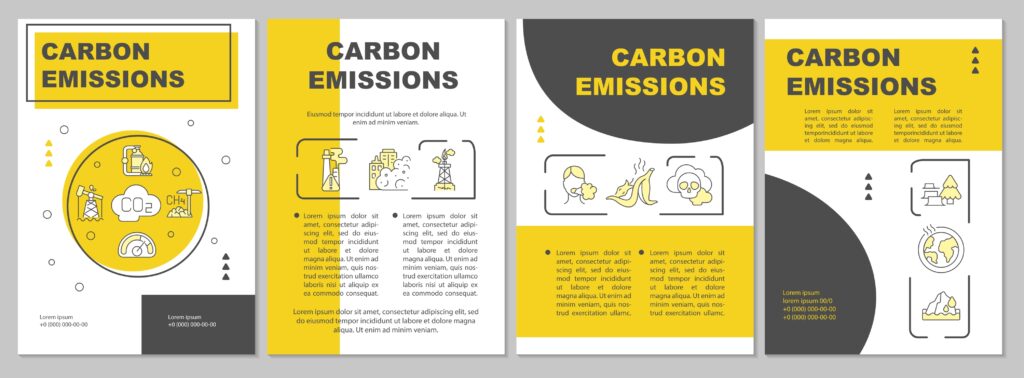Climate Reporting Deadline Approaches for Australian Businesses – What You Need To Know
Important Updates: Countdown to Climate Reporting – Stay Ahead of the Game
Attention all Australian businesses: Get ready for a significant shift in the landscape of climate reporting! The clock is ticking, and you won’t want to miss the latest developments that are set to reshape the way you disclose your climate impacts. From corporates to mum and dad operations all will be affected.
Key Changes Affecting Businesses of All Sizes
Hold onto your hats, because a new era of climate reporting is upon us, and it’s set to impact businesses both large and small. The Australian Federal Government is driving a wave of change that will require companies to provide detailed disclosures about their climate-related impacts – and that’s not limited to just their direct emissions. The focus now extends to the entire value chain, affecting industries ranging from major corporations to local mum and dad businesses. How you might ask! Keep reading…
The Bigger Picture: The International Sustainability Standards Board (ISSB)
Taking a step back, let’s look at the bigger picture. In 2021, the International Financial Reporting Standards (IFRS) Foundation established the International Sustainability Standards Board (ISSB). This board has crafted global standards for climate disclosure and sustainability reporting, and these standards were released in June 2023. Their goal? To ensure that businesses integrate sustainability-related information alongside financial statements, aligned with established financial and carbon accounting practices.
Navigating the Road Ahead: Consultations and Implementation
With the imminent shift towards climate-related financial disclosure, the Australian Federal Government is engaging in consultations with various stakeholders, including state based Business Chambers. The focus is on crafting a comprehensive approach to integrating climate reporting into the Australian business landscape. This encompasses aspects such as governance, strategy, risk management, targets, and environmental metrics – notably including greenhouse gas emissions in line with international norms.
These consultations are far from a mere formality; they play a crucial role in shaping the legislative changes that will guide businesses’ reporting practices. The aim is to provide a structured framework for disclosing climate-related risks and opportunities whilst keeping in mind the reduction targets set by the Australian Government. This affords businesses the time needed to enhance or to gear up with the needed expertise and capabilities to meet the climate reporting requirements.
Unpacking Emission Scopes: Core Elements of Reporting
You may or may not of heard how emissions are categorised and reported on, this framework is used globally and know as ‘Scopes’ of emissions. Reporting obligations will be aligned within these categories:
Scope 1: This covers direct greenhouse gas emissions coming from a company’s owned or controlled sources.
Scope 2: Indirect greenhouse gas emissions linked to the generation of purchased electricity, steam, heating, and cooling consumed by the reporting company.
Scope 3: All remaining greenhouse gas emissions throughout a company’s supply chain are encompassed by Scope 3.
Rolling Out the Framework: Proposed Phases
The implementation of these changes won’t happen overnight. It’s a phased process that’s been meticulously planned. The proposed timeline spans a four-year period, beginning from 2024 and extending to 2028. The key highlights of this phase-in approach are as follows:
(Information sourced from Pitcher Partners)
Starting Strong:
From July 1, 2024, Australia’s largest listed and unlisted companies, as well as financial institutions, will be required to adhere to mandatory reporting requirements. This initial phase focuses on those entities with significant economic presence and influence.
Phased Transition:
To ensure a smooth transition, a three-year phase-in period is in place. During this period, smaller businesses will be required to start reporting
- 2025 Group 1 – Revenues over $500m & assets over $1b
- 2026-27 Group 2 – More than 250 employees, $200m revenue $500m assets
- 2027-28 Group 3 – more than 100 employees, $50m revenue, $25m assets
Global Alignment:
The reporting framework strives to align closely with established international climate disclosure standards, ensuring consistency and comparability.
Small Players, Big Impact: The Ripple Effect
Even if your business doesn’t fall into the initial mandatory reporting bracket, don’t assume you’re off the hook. The ripple effect of this reporting system extends its reach. Businesses that are subject to mandatory reporting requirements must not only account for their Scope 1 & 2 emissions but, starting from the second reporting year, estimate Scope 3 emissions upstream or downstream within their product or service value chains.
This means a careful review of supply chains, seeking input from smaller suppliers and clients alike to gather relevant emissions data. Even mum & dad businesses, indirectly connected to these reporting requirements, will find themselves in the fold as the reporting network widens.
Championing Business Interests: The Role of Business Chambers
Amidst these dynamic changes, your state Business Chamber should be an advocate for your business by engaging in ongoing consultations with the Federal Government, ideally Business Chambers will look to ensure these imminent reporting requirements are managed with minimal disruption for Small, Medium, and Family Enterprises (SMFEs).
A statement by Scott Veenker, Acting Chief Executive of the Victorian Chamber, emphasizes the dual importance of environmental responsibility and business viability: “It’s an opportunity for businesses to demonstrate their commitment to sustainability, enhance their reputation, and create a more appealing work environment. However, we acknowledge the initial challenges that businesses new to carbon reporting may face, especially in grappling with Scope 3 emissions. This is where support and training play a pivotal role.”
The Bottom Line: Prepare for Change
As the clock ticks closer to the reporting deadlines, businesses across Australia must ready themselves for a new era of transparency and accountability. Whether you’re a major player or a smaller contender, the impact will be felt, and the journey promises both challenges and opportunities. Stay informed, get involved, and be prepared to navigate the evolving landscape of climate reporting. Your actions today will shape the future of your business and contribute to a more sustainable tomorrow.
An easy way to get a head start
If you’re a business wanting to stay ahead of this curve and benefit as early as possible Carbonhalo has a full suite of services that are fully compliant at a really low cost.
Get a free consultation





